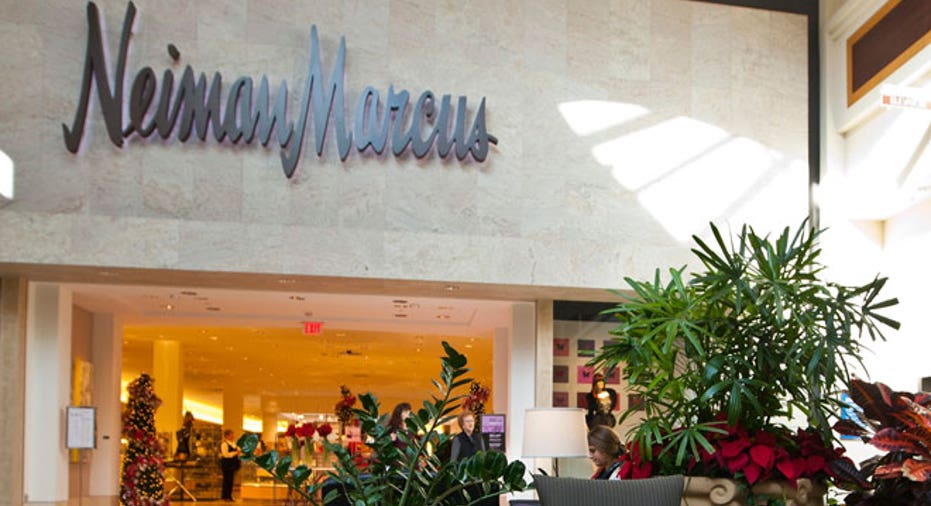Neiman Marcus Says It Is Exploring Options, Including a Sale

Luxury fashion retailer Neiman Marcus Group Ltd LLC said on Tuesday that it was exploring strategic alternatives, including changes to its capital structure or a sale of the company, as it seeks relief from its swelling debt pile.
The announcement follows a Reuters report earlier this month that the company had turned to investment bank Lazard Ltd to explore ways to bolster its balance sheet. Neiman Marcus has total liabilities of $6.4 billion, including $1.2 billion of deferred income taxes.
Hudson's Bay Co, owner of the Lord & Taylor and Saks Fifth Avenue retail chains, is in exploratory talks about acquiring Neiman Marcus, according to people familiar with the matter.
The Wall Street Journal reported earlier on Tuesday that Hudson's Bay was seeking a deal that would give it control of the business without having to assume Neiman Marcus' debt. It did not provide details as to how this can be achieved.
It was not immediately clear how the company's capital structure could allow for a sale that would be in compliance with its debt obligations without some arrangement with creditors. Hudson's Bay and Neiman Marcus declined to comment.
Neiman Marcus also said it made changes to its corporate structure, including naming subsidiary online store My Theresa and some of its properties in Virginia and Texas "unrestricted," meaning not subject to the same rules under credit agreements as other units of the company.
However, experts said this was aimed more at helping the company better manage its debt liabilities.
"They want to increase flexibility to deal with creditors," said Anthony Canale, head of high yield research at research firm Covenant Review LLC. "They want a bargaining chip."
Hudson's Bay had approached department store operator Macy's Inc earlier this year about an acquisition, but its bid stumbled as it struggled to line up equity financing, sources told Reuters earlier this month.
Neiman Marcus would be a significantly smaller acquisition. It had $4.9 billion in sales in 2016, compared with Macy's $25.8 billion, and has roughly 40 stores, compared with more than 700 stores operated by Macy's.
Neiman Marcus has been challenged by the same problems as other U.S. retailers: pressure to offer discounts to entice shoppers who increasingly prefer the price and convenience of buying online.
Meanwhile, shares of Hudson's Bay tumbled more than 20 percent to a record low in January after it cut its revenue forecast for the year ended on Jan. 28 for the second time, citing a challenging retail environment in the United States and Europe.
Hudson's Bay shares were down 1.2 percent to C$11.75 in Toronto on Tuesday afternoon, giving it a market capitalization of C$2.1 billion.
Dallas-based Neiman has also been challenged as affluent Texans have cut back on buying because of a drop in energy prices, while a stronger U.S. dollar has restrained spending at its Bergdorf Goodman department store, a popular New York tourist destination.
Neiman Marcus on Tuesday reported a 6.1 percent drop in quarterly revenue and a net loss of $117 million, compared with year-earlier net earnings of $7.9 million. It blamed the results in part on an inventory management system that failed to work properly, leaving it unable to fill orders.
The company also wrote down the value of the Neiman Marcus brand by $153.8 million, after having reduced it by $466.2 million last September.
Private equity firm Ares Management LP and the Canada Pension Plan Investment Board had acquired Neiman Marcus for $6 billion in 2013.
Despite its challenges, Neiman Marcus has been renovating existing stores and still plans on opening new ones, including a flagship location at New York City's Hudson Yards development.
(Reporting by Sruthi Ramakrishnan in Bengaluru and Lauren Hirsch in New York; additional reporting by Jessica DiNapoli in New York; Editing by Saumyadeb Chakrabarty and Lisa Von Ahn)



















